St Thomas the Apostle, Kambah – A Catalyst School Journey
Learn about the positive impact the Catalyst program is having in the classrooms at St Thomas the Apostle – Kambah.
Learn about the positive impact the Catalyst program is having in the classrooms at St Thomas the Apostle – Kambah.
Learn about the positive impact evidence-based teaching practice is having in the classrooms at Merici College, Braddon ACT.
Learn about the positive impact evidence-based teaching practice is having in the classrooms at St Thomas Aquinas, West Belconnen ACT.
In the lead up to the Sharing Best Practice conference in Canberra, Catholic Education Canberra Goulburn welcomed colleagues from South Australian schools Elizabeth Vale Primary School and Port Lincoln High School, NSW schools Our Lady of Rosary Primary School, Fairfield and Windsor South Public School, and Senior Education Improvement Leaders, Inner Gippsland Victoria to visit schools across the Archdiocese to observe teaching practice implemented through Catalyst.
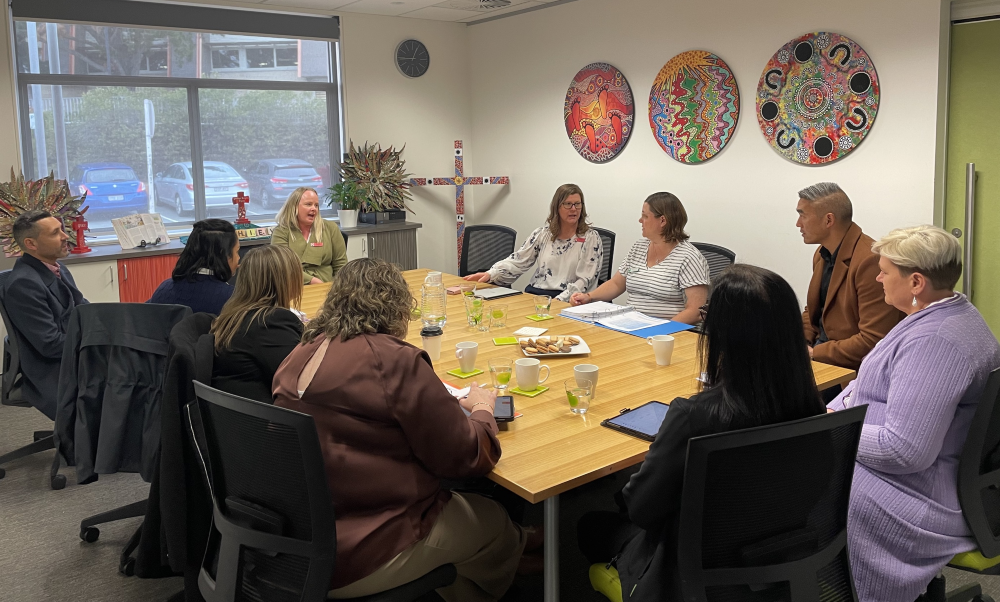
Visitors at St. Monica’s Primary School, Evatt
Director Ross Fox said it was terrific to see the Science of Learning teaching approach gaining momentum across the nation.
“We are delighted to show other schools and systems our teaching approach in action,”
“By sharing our experiences in rolling out a program like this across 56 schools, we hope we can support others to do the same.”
Brendan Lee, an experienced school teacher who has developed a passion for the Science of Learning and host of the podcast Knowledge for Teachers, said he could see the impact of the teaching practice
“Your classes and corridors are so calm. I can actually see the students are learning”.
The Sharing Best Practice conference at Merici College in Canberra brought together educators from across the nation to network with the experts in evidence-based teaching practice. Keynote presenters, Professor Anne Castles and Dr Bartek Rajkowski were joined by leading researchers, practitioners and educators, to share key learnings and insightful recommendations in the practical application of evidence-based teaching.
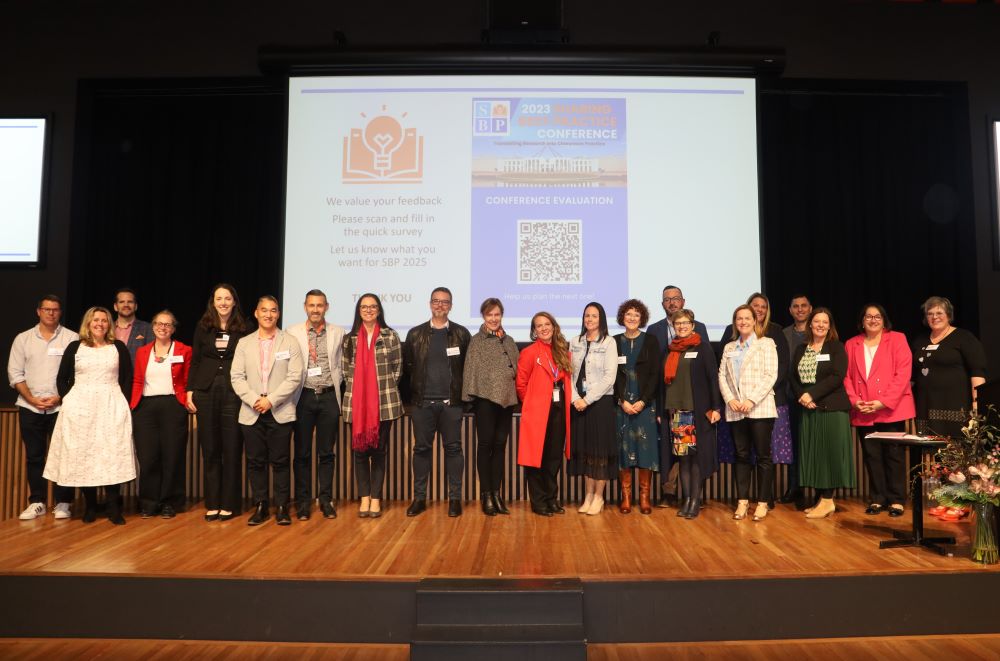
Sharing Best Practice Conference Canberra Presenters
In a day filled with knowledge sharing, attendees were able to select from a number of specialised breakout sessions to fully immerse themselves in the practicalities of the pedagogy.
Catholic Education Canberra Goulburn were consistently featured across the day through Catalyst, in several sessions including
The event was rounded off with a presentation from the Catalyst team, showcasing the Catalyst Program as CECG’s approach to improving student outcomes.
One participant from the day said “thank you everyone involved. It was the best PL I’ve done in 17 years of teaching”.
Learn more about Sharing Best Practice and their upcoming events.

Principals and teachers throughout Catholic Education Canberra Goulburn are delighted in the 2023 NAPLAN results achieved, which are testament to high impact teaching practice implemented through
the Catalyst program, which was launched in October 2020.
Notably, Year 3 and 5 students at CECG schools as a whole outperformed the national averages in both Reading and Numeracy. These results show the Systems progress towards achieving one of the Catalyst approach’s bold goals of “every student a competent reader”.
Catholic Education Archdiocese of Canberra & Goulburn Director, Ross Fox, attributes the results to high quality classroom instruction. “If we get that right, 90 to 95 per cent of students should reliably progress. And for those students who may still need further help and support, the program places high priority on early intervention.”
Mr Fox said that the results were being quantified to provide an evidence base on the new approach, supporting research already undertaken by the Snow Foundation, early in 2023, which showed improvement in performance against expectations in reading.
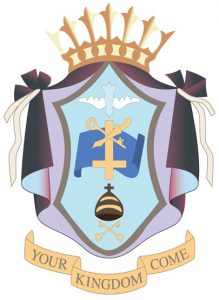
Sts Peter and Paul Primary, Garran, has seen a significant improvement in their NAPLAN results, credited to the implementation of a Science of Learning based teaching approach. This year’s NAPLAN results have shown the efficacy of the explicit method, Principal Cameron Johns told the Canberra Times.
“The results are very pleasing and it’s certainly an indication of the great work that the system has put into schools,”
“I do think it’s evidence that it’s working,” he said.
Meanwhile, at St Vincent’s Primary School in Aranda, NAPLAN results across reading, writing, spelling, grammar and numeracy were higher than the ACT, NSW and national averages. In Year 3, 41 percent of students excelled in reading and 52 percent were rated as strong readers.
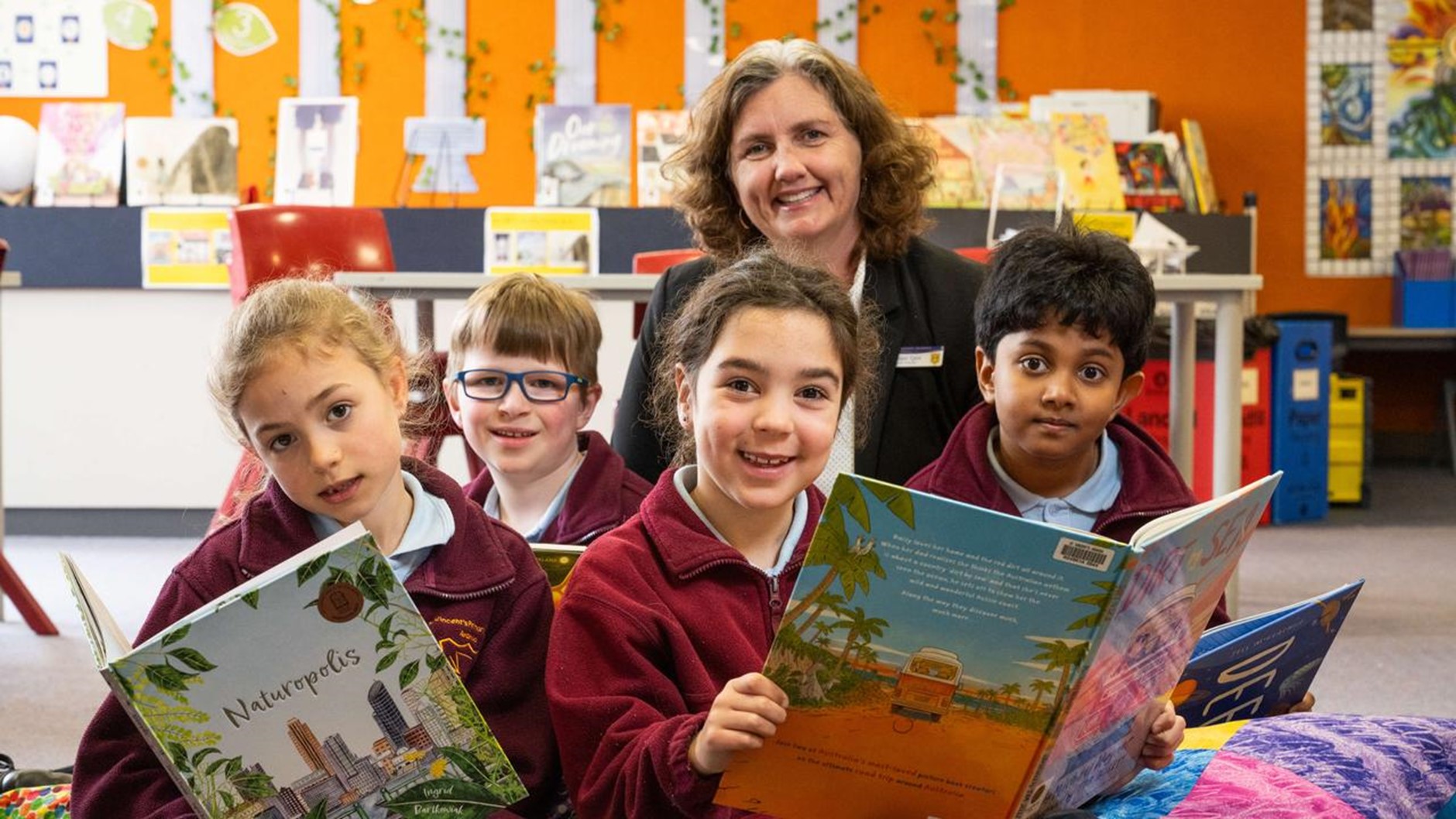
Acting principal Monique Egan reads with year 3/5 students, Mila, Liz, Ryan and Bjanuka at St Vincent’s Primary School in Canberra. Picture: Martin Ollman. Image credit:
The Australian
In an interview with The Australian, Acting Principal, Monique Egan, said “We believe our strong performance is a result of the change in pedagogy we have undergone in recent years. We set very high expectations and we revisit the same idea over and over again and do multiple checks for understanding with students’ understanding every lesson.”
In addition, the explicit teaching methods have not just delivered higher academic standards, but also has led to happier and more engaged students, “and when you have more focused kids, you get more learning done.”
Ms Egan has a Masters in Cognitive Science and is delighted to see the ‘brain science’ underpinning the Catalyst framework delivering impact in the classroom.
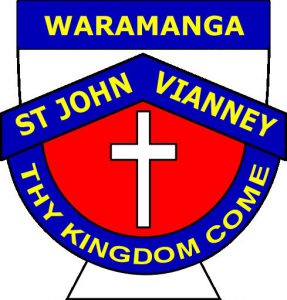
St John Vianney’s Primary School in Waramanga was featured in an ABC news article celebrating the strong NAPLAN scores for Canberra Catholic Schools. Assistant Principal, Nina De Rosa, expressed her excitement at the “great difference” the Catalyst teaching approach has made, saying,
“I think our results still shine because our children are happy to learn and they’re achieving at their level”
NAPLAN 2023 results proves science of reading, explicit teaching works, St Peter and Paul Primary School principal Cameron Johns says, The Canberra Times
Read online (subscription required)
$662bn debacle: one in three kids fails NAPLAN literacy, numeracy, The Australia
Read online (subscription required)
Canberra’s Catholic schools celebrate strong NAPLAN scores as ACT students perform better than national average, ABC News
Read online
Catholic schools show way as new ‘explicit teaching’ approach reaps NAPLAN rewards, Riotact
Read online

Michaela Community School Headmistress, Katharine Birbalsingh, speaking with students in the yard. Image credit: Michaela Community School
It was the absence of noise and chaos that made the scene so astonishing. The Australian educators stood there in disbelief, as hundreds of high school students filed out into the corridors of Michaela Community School in north London and made their way to their next class.
The only words uttered were “Good morning, Sir” or “Good morning, Miss” as students respectfully greeted their teachers on entering their next classrooms.
Students made their way to their rooms, entering one at a time as their teacher greeted each of them by name. During the lesson everyone sat straight, arms folded across their chest, eyes focused on the teacher at all times.
Even more surprising for the team from Catholic Education Canberra Goulburn (CECG) was that the students embraced this rigid structure and routine. Over lunch time chats, students revealed that the clearly defined behavioural expectations created a calming environment that made them feel safe. The routine reduced stress and it allowed them to focus on learning.
Their school wasn’t academically selective, or in a privileged area. In fact, it was quite the opposite. Michaela Community School serves a low-socio economic community, with a large refugee population. By embracing a similar to Catalyst, they are receiving international attention for ‘punching above their postcode’ in their academic achievements.
Michaela’s results are mirrored at Ark Soane Academy – a new high school founded on evidence-based education. They also deliver the curriculum through a direct instruction model with a high level of structure, tight sequencing and teacher-led exposition supported by whole of school routines.

Tour participants visiting Ark Soane Academy, West London
The visit to both schools was part of a Science of Learning study tour coordinated by Knowledge Society. CECG sent 7 participants to learn from the United Kingdom’s experience in implementing:
The UK is ten years further along their SoL journey than Australia and the tour was a chance to get a glimpse of the future and learn from their successes and missteps.
So, what are CECG team’s key learnings?
The CECG team appreciates the way that whole of school routines prepare students for learning. Michaela and Ark Soane students know exactly what is expected of them at every moment during the day. This consistency across every classroom reduces cognitive load for students and means teachers maximise every opportunity for learning as they’re not spending time settling the class.
Brad Gaynor, a Performance Improvement Leader, who oversees 14 schools in CECG, commented, “I was sceptical at first. However, the kids loved the routine and structure. It brings order to everything and the routine makes them feel safe.”
Grant Haigh, Principal of St Anne’s Temora Secondary School, adds, “It’s not about turning kids into robots – it’s about introducing positive habits and routine that best prepare them for learning.”

An Ark Soane Academy student engaging in a lesson. Image Credit:
Ark Soane Academy
Both schools have high learning and behaviour expectations for every child, regardless of their socio-economic background or additional needs, which students continue to meet. Michaela consistently outperforms similar schools and its students have been accepted into the most prestigious universities in the UK – including Oxford and the London School of Economics.
Kathy Holding, Principal of Hennessy Catholic College, Young, found the trip enlightening, saying, “Every child can grow and has the right to do challenging work.”
The sentiment was echoed by Christine Wanjura, who oversees teaching and learning supports for students with additional needs. “For 90% of kids, it provides exactly what they need. To create the same expectations for the other 10% , we must have the wrap around supports to help them succeed.”
Something that took the team by surprise was the focus both schools place on oracy. It is woven into all aspects of their curriculum and is displayed by articulate and confident students. The team all agreed it needs to be a crucial part of the curriculum – for both students and teachers.
Patrick Ellis, Education Lead at CECG, was impressed with how a focus on language and speech was tied into the schools’ daily routine of gratitude, where students give thanks to those who have helped them. He notes, “This is very relevant for a Catholic organisation.”
“Through Catalyst we focus on aspects of improving language, by promoting answering in full sentences and choral response,” he said.
Christine Wanjura called out the importance of language development for inclusion, saying “The ability to express yourself and your ideas fluently is crucial for social justice.”
Kathy Holding succinctly summarises, “Everyone needs a voice.”
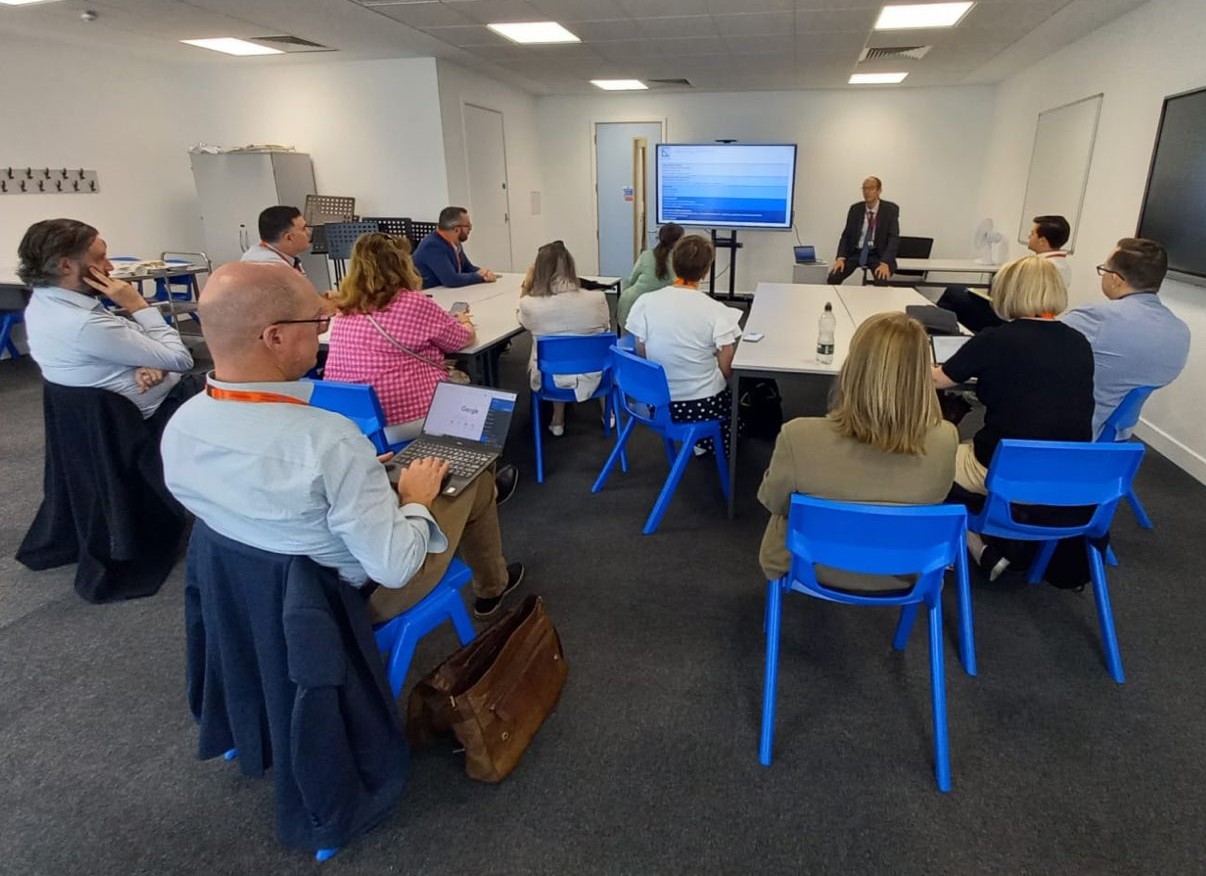
Tour participants engaging in a session at Ark Soane Academy
The UK experience confirms that in order to achieve the best outcomes for the students, the teacher is the most important learner.
Teacher focus is a pillar of Catalyst, upskilling and supporting them with professional learning, and developing a suite of quality resources to create a low variance, knowledge rich, curriculum.
While this approach is the exception in Australia, it is the norm in the UK. Pre-prepared resources allow UK teachers to focus their energy on delivering the curriculum – as well as reducing workload.
“Teachers need time to teach, not prepare resources,” notes Principal, Kathy Holder.
Christine Wanjura was impressed by the quality of teaching across the board, with teachers delivering great content explicitly. She also observed how proficient the teachers were with technology and how they used it with great impact in their classrooms.
Just as students thrive when they know what is expected of them, so too do teachers. Both schools conducted extensive onboarding for new staff to help them understand the evidence-based reasoning behind the rules and routines. This creates the foundation for consistent standards across the school and allows new teachers to hit the ground running.
Cameron Tarrant, Principal of St Joseph’s Primary School, O’Connor, suggests this needs to extend to the whole school community. “We need to codify our expectations and give it to our staff, students and parents. Whether it’s how we move through the school, how we treat each other, or how we teach literacy, we need to embed a common language about what we do and why we do it.”
For Brad Gaynor, it was the value of point in time feedback that really shifted his thinking. Both schools have a culture of continuous feedback, where teachers briefly observe each other in action and give immediate feedback. This instructional coaching model is low stakes and non-threatening, with a different focus every week. Brad’s take away was that effective teacher reviews don’t have to be a formalised, intrusive event.
For the CECG team, the trip confirmed what they are seeing in their own schools: Catalyst works. “The UK reinforces we are on the right track,” says Brad Gaynor.
Patrick Ellis adds, “We have laid the foundations right.”
The CECG team has captured some valuable learnings from the UK Study Tour to reflect upon with our current Catalyst journey, as we continue to move from implementation to embedding and sustaining.
Learn more about the schools

Sts Peter and Paul Primary, Garran, has seen a significant improvement in their NAPLAN results, credited to the implementation of a Science of Learning based teaching approach. This year’s NAPLAN results have shown the efficacy of the explicit method, Principal Cameron Johns said.
“The results are very pleasing and it’s certainly an indication of the great work that the system has put into schools,”
“I do think it’s evidence that it’s working,” he said.
Read the Canberra Times article: Download a PDF copy | Read online (subscription required)
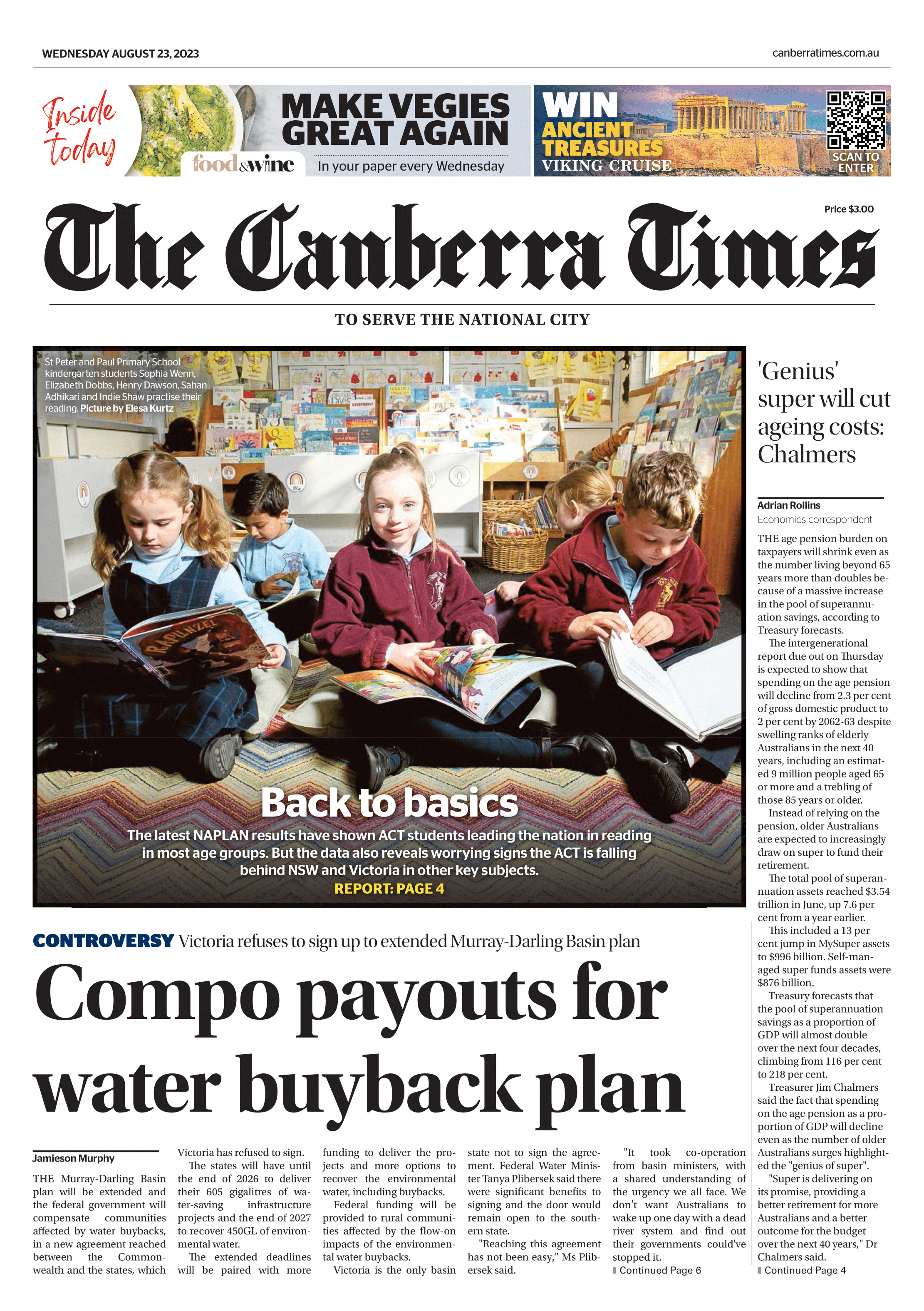
Catholic Education Canberra Goulburn’s approach to teaching and learning has continued to draw national interest from across the Nation, with colleagues from Catholic Education Diocese of Cairns visiting some of our schools to see it in action.
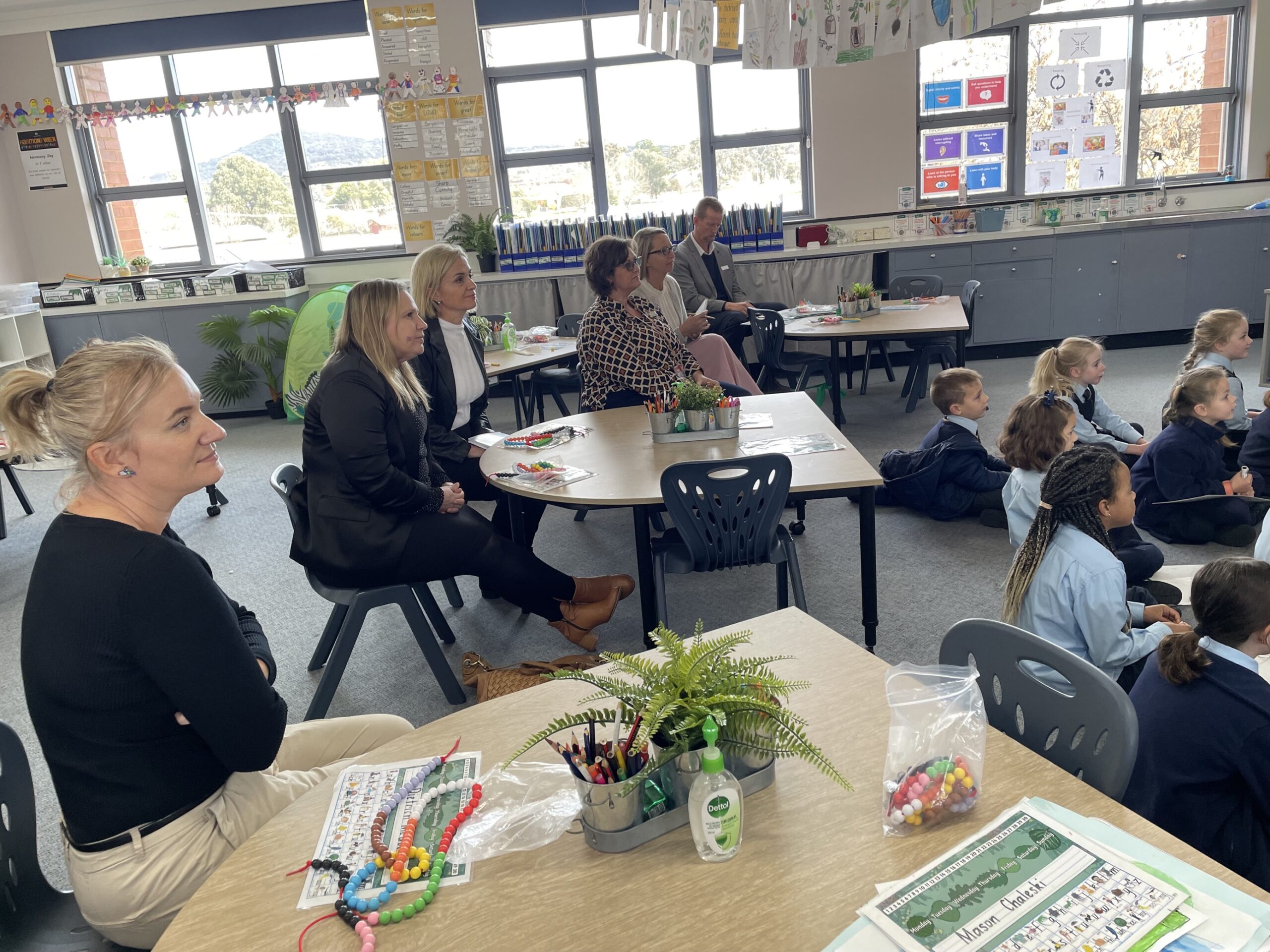
Viewing teacher practice at Holy Family Primary School, Gowrie
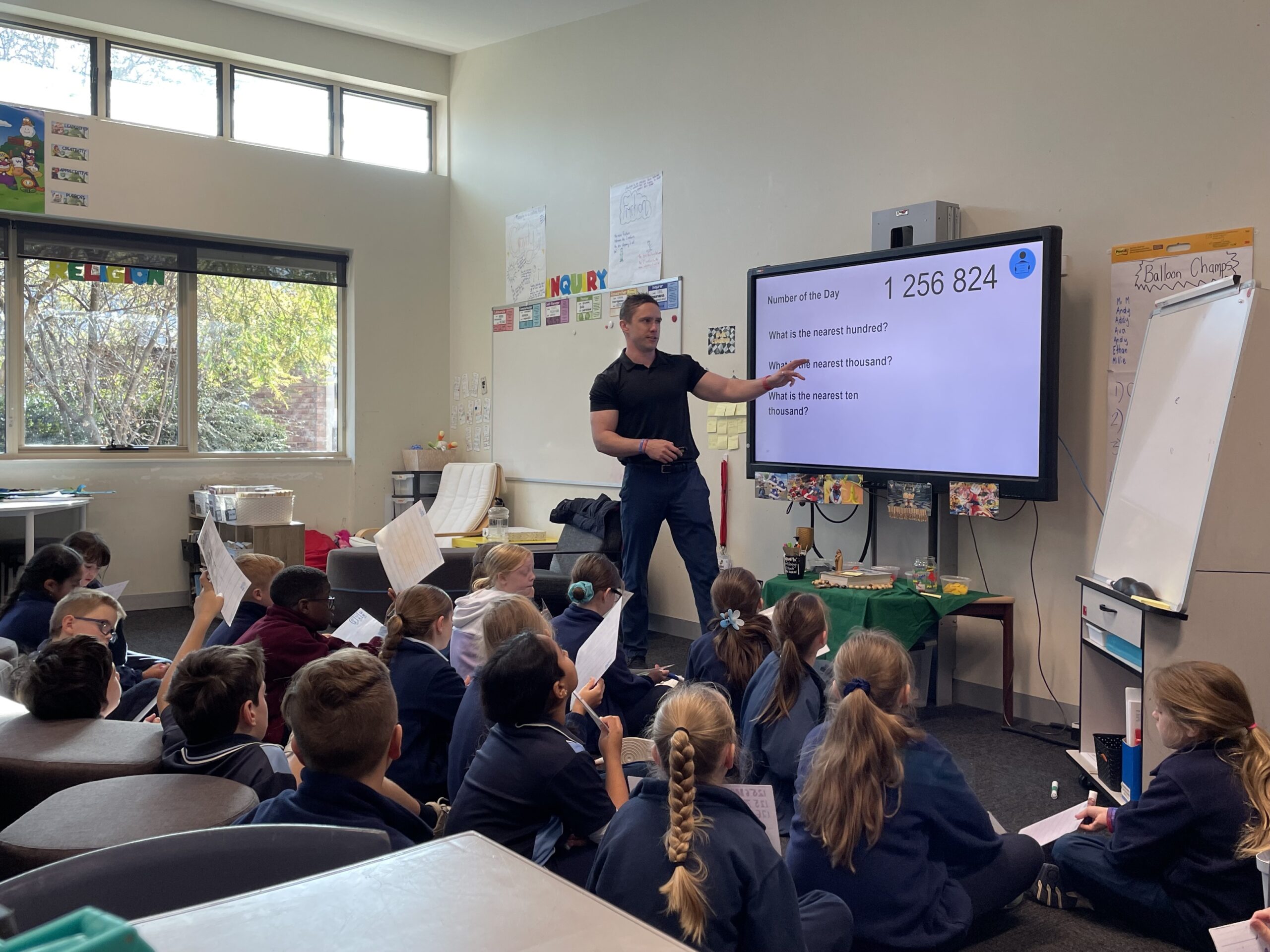
Viewing teacher practice at St Gregory’s Primary School, Queanbeyan
The Catalyst team were delighted to host four system leaders from the Cairns Diocese as they sought to learn more about how High Impact Teaching Practice has been implemented across our schools.
Our colleagues from Cairns visited 4 schools observing HITP in action and speaking to teachers and school leaders about the positive impact at both school and classroom levels, as well as the improvement in student outcomes.
They also spent time with CECG Director Ross Fox and the Catalyst team to gain insights into the implementation approach from a system level.
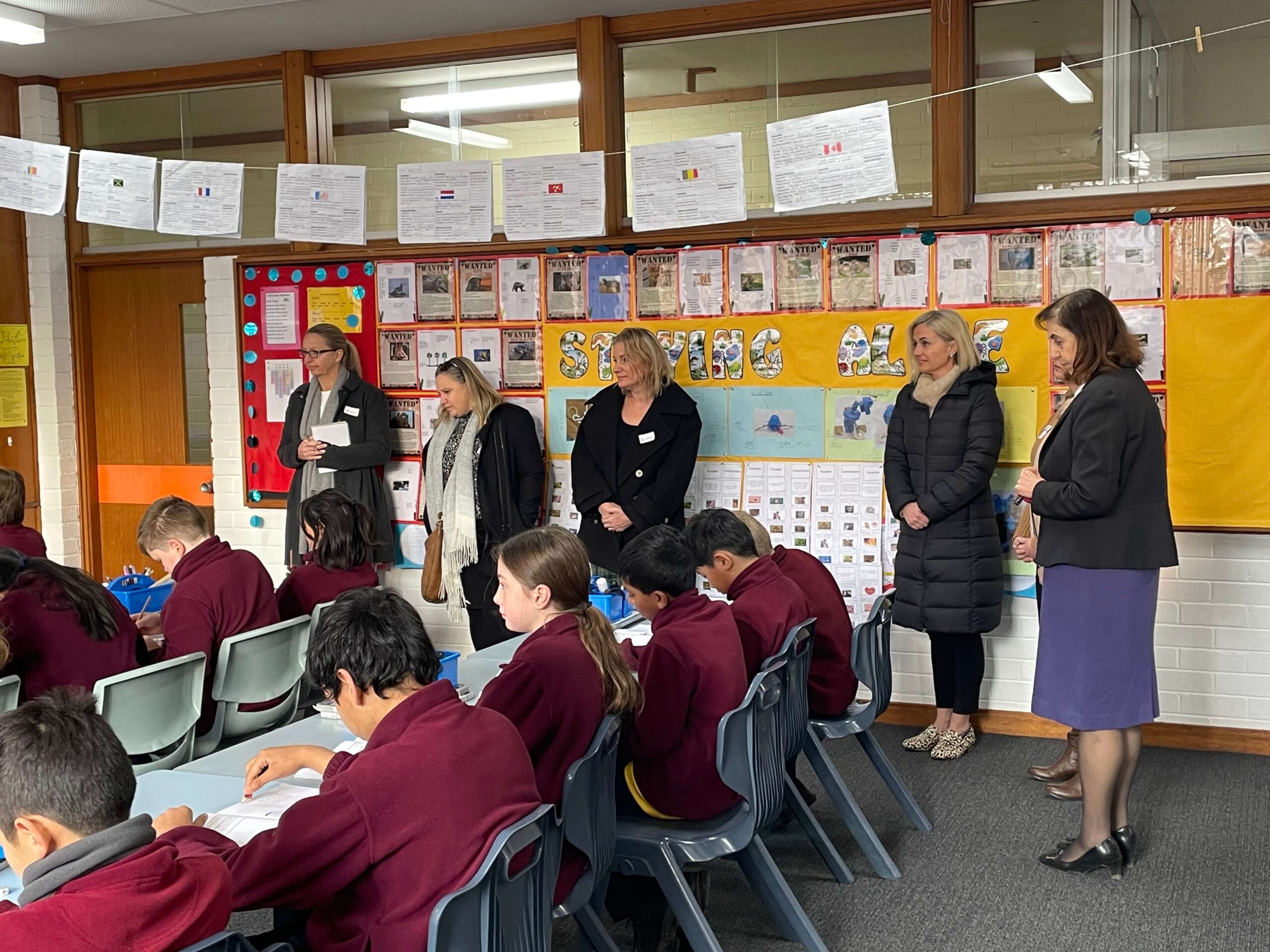
Viewing teacher practice at St Vincent’s Primary School, Aranda
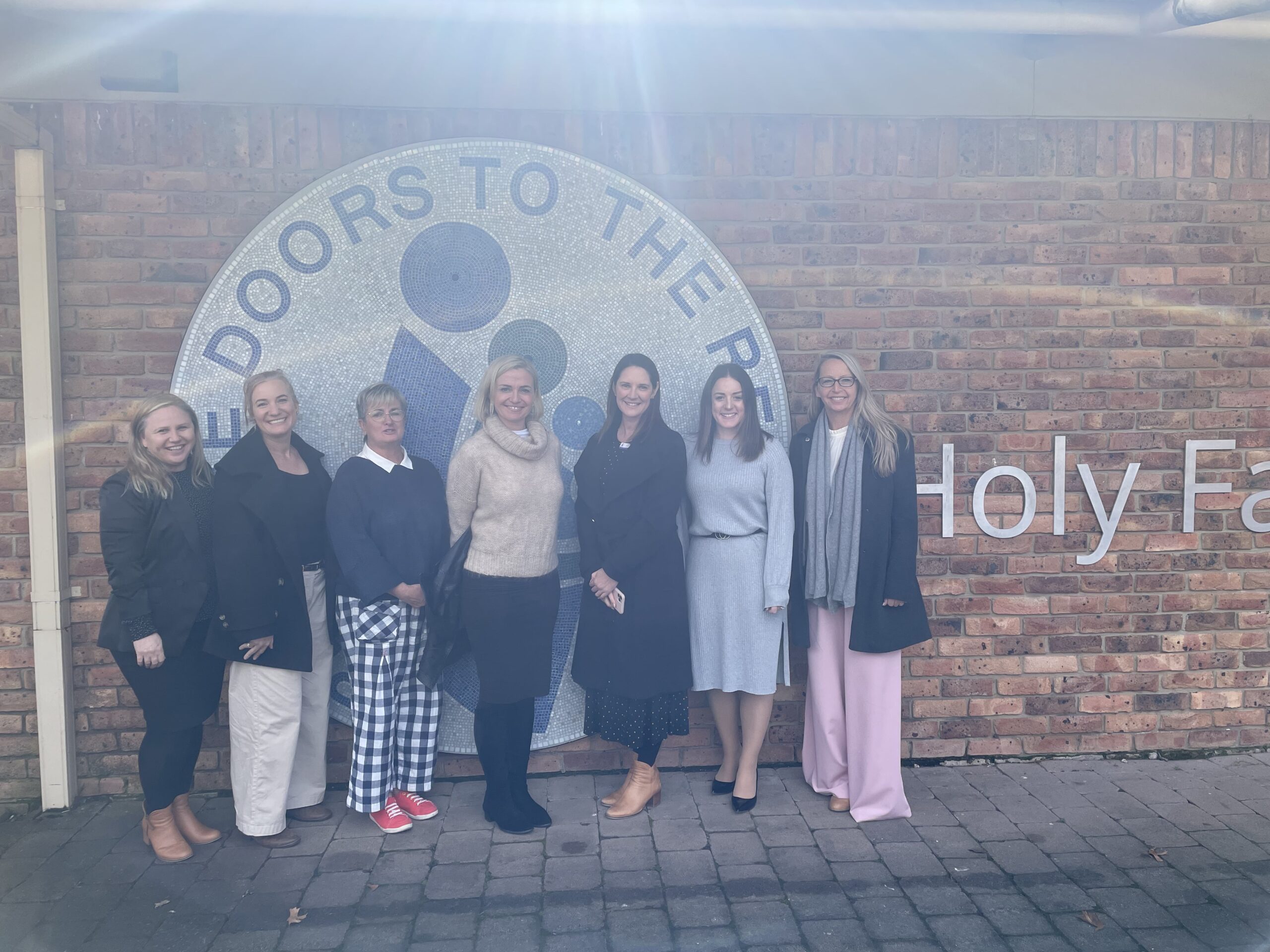
Meeting the team at Holy Family Primary School, Gowrie
Catholic Schools in Canberra have made marked improvement in the reading performance of its students according to the Equity Economics report, prepared for the ACT Alliance for Evidence-Based Education.
The analysis found Catholic schools lifted the performance of Year 3 students in NAPLAN reading over the past four years after adopting Catalyst in 2020.
Ross Fox, director at Catholic Education Archdiocese of Canberra and Goulburn, welcomed the report as an endorsement of the sector’s efforts to lift literacy outcomes.
“It’s great that the dedicated efforts of our teachers to improve learning for students is recognised in this way.
“We need more time to measure long-term outcomes, but we are seeing significant improvements in schools and classrooms and positive feedback from parents that we are on the right track and making good progress,” he said.
The Equity Economics report has urged others to adopt many of the changes made at Catholic schools under the Catalyst program.
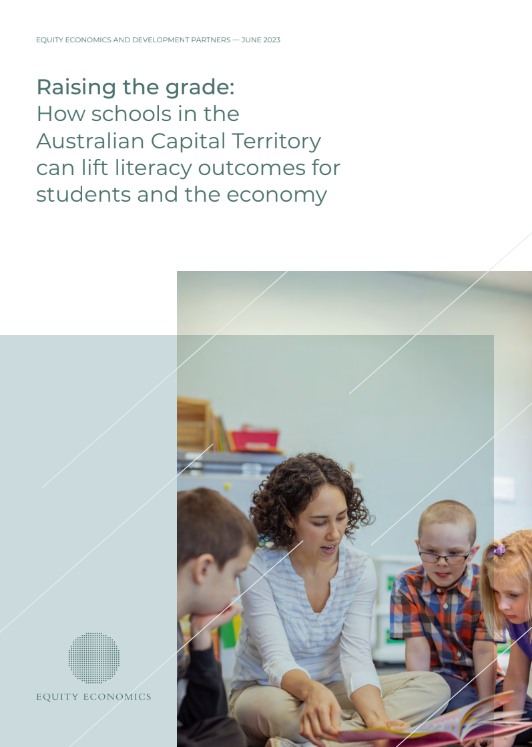
‘Raising the grade: How schools in the ACT can lift literacy outcomes for students and the economy’ report cover page